Female age of consent still unregulated
Despite laws against child marriages, the legislation and implementation of minimum age laws has been unsatisfactory
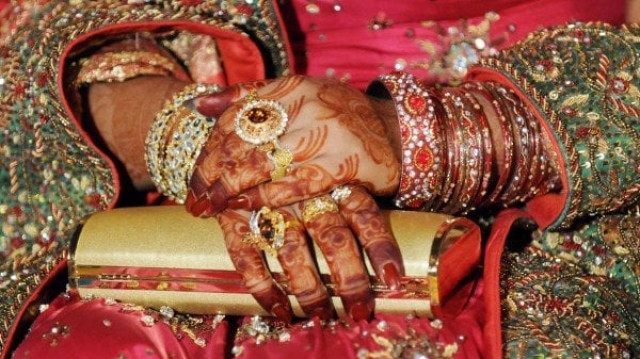
In Pakistan, men are given precedence over women in nearly all matters. Male guests will be seated first at a family dinner, male students will be selected for accolades and scholarships while male applicants will conventionally be prioritized by recruiters. However, there is one matter where the society has ironically sanctioned women to be given precedence; the age at which their childhood can be sacrificed in the name of culture.
As per the Punjab Marriage Restraint (Amendment) Act, 2015, the minimum age of marriage for boys is fixed at 18 years while girls could be married off by the age of 16 years. In April 2024, the Lahore High Court ruled that the minimum age of marriage for both boys and girls should be 18 years. Following this decision, the Punjab government drafted a law on the issue of child marriage, to raise the age of consent of girls to the age of 18 years however, the legislation remains to be finalized.
Nabila Shaheen, Provincial Coordinator at the Aurat Foundation, claimed that although family customs were the primary reason behind early marriages, they also include a religious element to some extent. "However, religious opposition should not be a hindrance in this legislation since the minimum age of marriage of girls has been fixed at 18 in Sindh as well. Therefore, I believe the political parties themselves are responsible for not enacting this legislation," claimed Shaheen.
"Various socio-legal and religious difficulties come in the way of raising the minimum age of consent for a girl from 16 years to 18 years in Punjab. Poverty and illiteracy in rural areas promote child marriage since families try to reduce their financial burden by marrying off their daughters. At the state-level, pressure from the religious groups and some feudal legislators has perhaps prevented the government from addressing this issue," opined Nida Usman, a lawyer and founder of the Women in Law Initiative.
On the other hand, Hina Pervaiz Butt, Chairperson of the Women Protection Authority Punjab claimed that the Punjab government was in favour of raising the minimum age of marriage to 18 years for girls, but the matter was under dispute at the Council of Islamic Ideology. "I personally think that even 18 years is too young to get married for a girl, but if the consensus is at this age, then it should be implemented," said Butt who urged the Council of Islamic Ideology to understand the problems arising out of child marriages.
According to the United Nations Population Fund (UNFPA) Pakistan, girls who marry early are at a higher risk of domestic abuse and health issues including high-risk pregnancies, fistula, sexually transmitted infections, and childbirth complications. According to health experts, due to early marriages, multiple health complications arise during delivery since the female child's body is underdeveloped and cannot bear the burden of childbirth. This contributes significantly to high maternal and child mortality rates.
UN reports claim that 50 per cent of women in Pakistan are married by the age of 19 while 13 per cent are married by the age of 15. As a result, 9 per cent of girls aged 15 to 19 years have become mothers. Although it might appear that child marriages would be less prevalent in Sindh, where the minimum age of marriage is fixed at 18 for both boys are girls, underage girls continue to be married off way before their legal age.
Recently, "climate marriages" have emerged as a significant challenge, with 45 underage girls married off in a single village of Dadu during the monsoon rains last year. According to data provided by the Inspector General Police Sindh to the Sindh Home Department, 57 cases of child marriage were registered in eight districts of Sindh between 2018 and 2023, with the highest number of cases, 21, reported from Dadu.
The situation is much worse in Khyber-Pakhtunkhwa where, till date, no effective legislation could be devised to protect minor girls from child marriages. As per local reports, the practice continues to plague underage girls in the province, where a total of 153 cases of child marriage were reported between May 2011 and December 2023 across 12 districts, while countless others remain unknown.
The Express Tribune tried reaching out to Dr Raghib Naeemi, Chairman of the Council of Islamic Ideology however, he chose not to respond. On the other hand, Qibla Ayaz, Former Chairman of the Council conceded that in the current context child marriages were problematic.
"Public awareness should be raised over child marriages so that parents themselves avoid the marrying of their girls at a young age. Even though I consider the current age appropriate, legally it is not correct for everyone to apply this condition. Instead of changing the law, it is necessary to take steps to challenge the culture," opined Ayaz.



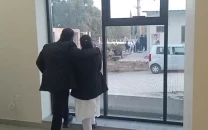

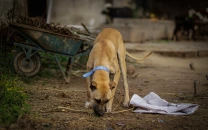
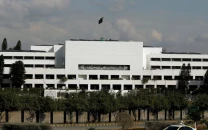




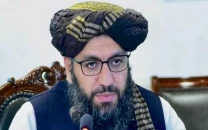







COMMENTS
Comments are moderated and generally will be posted if they are on-topic and not abusive.
For more information, please see our Comments FAQ